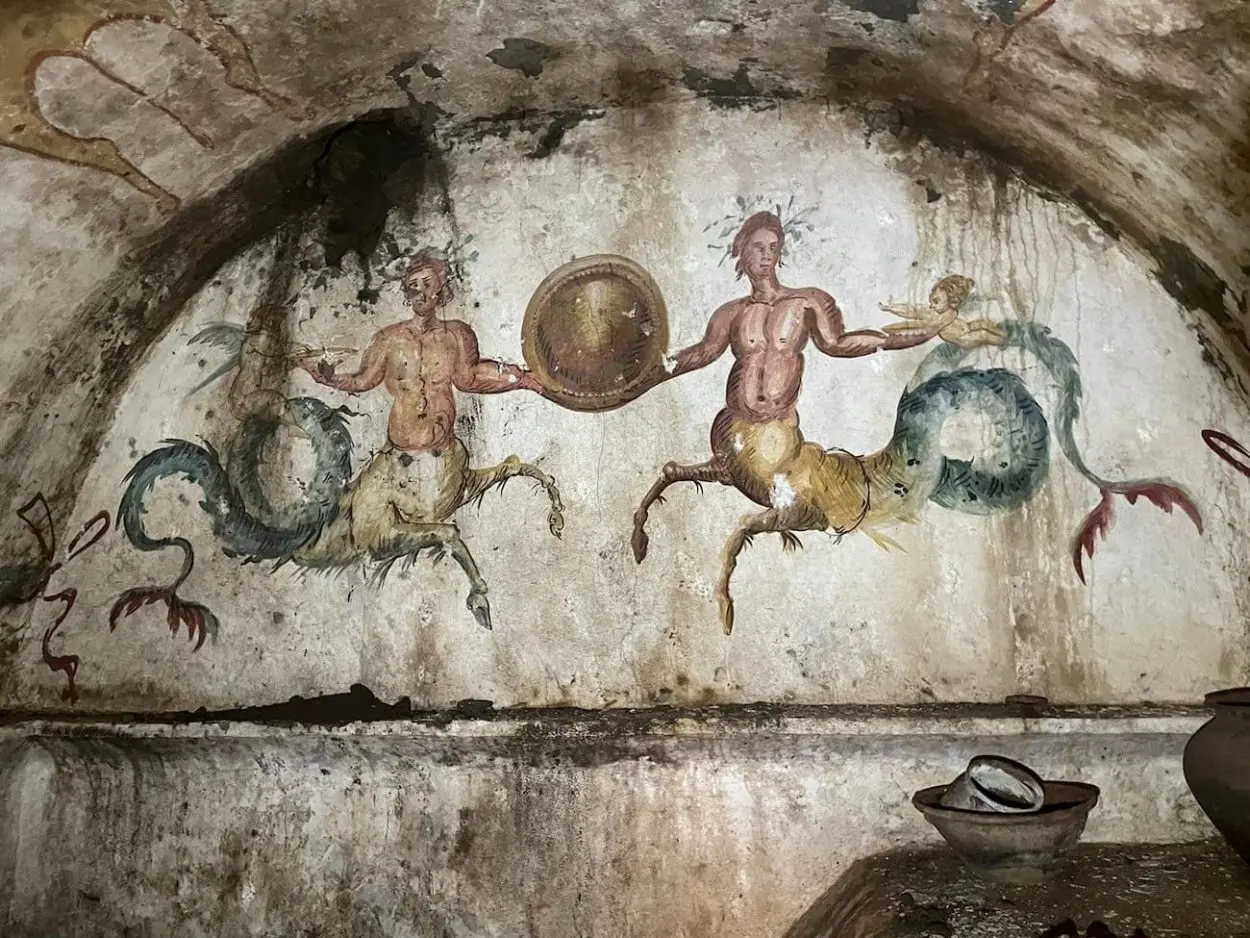The “Tomb of Cerberus” with its stunning frescoes discovered in October 2023 near Naples, Italy is perhaps the top archaeological find of the year.
The tomb was discovered during an archaeological survey ahead of water supply system updates in the municipality of Giugliano in Campania.
This ancient chamber tomb was well-preserved and sealed with a tuff slab. It has managed to guard its secrets for centuries. Upon gaining entry, archaeologists found remarkable frescoes adorning the tomb’s walls.
One of the most striking features of the ancient tomb found in Italy is a vivid representation of Cerberus, the three-headed dog from Greek mythology. Cerberus, often referred to as the “hound of Hades,” is famous for guarding the gates of the Underworld to prevent the souls of the departed from escaping.
In the earliest description of Cerberus, Hesiod’s Theogony (c. 8th – 7th century BC), Cerberus has fifty heads, while Pindar (c. 522 – c. 443 BC) gave him one hundred heads. However, later writers almost universally give Cerberus three heads.
An exception is the Latin poet Horace’s Cerberus which has a single dog head, and one hundred snake heads.
Tomb of Cerberus and the myth of Heracles
The fresco inside the tomb portrays a pivotal moment in the myth of Heracles during which he successfully captures Cerberus as part of his twelve labors.
The mythological figure’s “Labors” are a series of feats carried out as penance for crimes he committed yet was not fully responsible for like so many other figures from Greek mythology, such as Oedipus, he was a tragic individual, fated to carry out his crimes by powers that controlled his life.
Herakles, whose name was later Romanized as Hercules, was the greatest of all Greek heroes. He undertook his feats at the service of King Eurystheus, who was continually portrayed as a comic figure cowed by the great man’s strength and derring-do.
Also depicted in the tomb are mythological scenes of ichthyocentaurs, a centaurine-type sea creature with the upper body of a human, the lower anterior half and forelegs of a horse, and the tailed half of a fish.
The scene shows two ichthyocentaurs facing each other and holding a clypeus (a shield worn by the Greek hoplites and Romans) while being attended by two winged erotes (Roman Cupid-like babies).
According to a press announcement by the Superintendent Of Archaeology, Fine Arts And Landscape For The Naples Metropolitan Area: “The tomb has frescoed ceilings and walls in perfect condition, with mythological scenes that go all around the room and figurative representations among which, a three-headed dog stands out.
“Three painted klìnai, an altar with vessels for libations, the deceased still placed on the funeral beds with rich objects – complete the picture of a discovery which, in this area, is unprecedented.”
This is one of many remarkable discoveries in Italy related to Greek mythology. In 2018, an archaeological team discovered a remarkable fresco in Pompeii depicting the mythological meeting of Zeus (Roman Jupiter), disguised as a swan, and Leda, queen of Sparta.
Similar depictions of Queen Leda with the divine swan were common in Pompeii and Herculaneum. These ancient cities were destroyed by Vesuvius‘ eruption in 79 AD. It looks like Leda is looking directly at the viewer as she enters the bedroom.
In August, other excavations in Pompeii unearthed two houses decorated with frescoes. Those depict Greek gods and human remains.
Source: Greek Reporter







